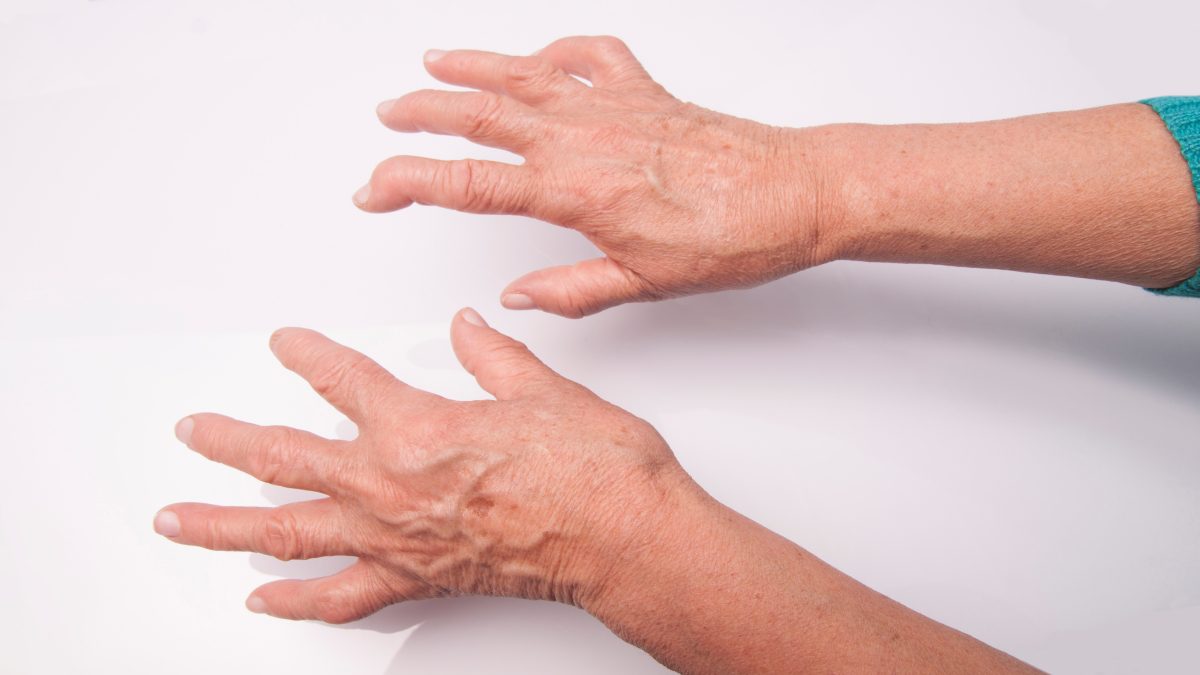Symptoms of rheumatoid arthritis
Typically, signs and symptoms of rheumatoid arthritis include:
- Swollen, warm, and tender joints
- Weight loss, fever, and fatigue
- Firm lumps of tissue just under the skin on your arms (these are known as rheumatoid nodules)
- Stiffness on awakening that may persist for hours
Early in the disease process, rheumatoid arthritis usually affects the smaller joints in your body. For example, the joints joining your fingers and your hands, or your toes and feet. The condition often spreads to the elbows, knees, shoulders, hips, and ankles in later stages. It affects the same joints on opposite sides of your body.
The symptoms of rheumatoid arthritis may come and go, at times being extremely severe and at other times being relatively tolerable. However, deformity and misalignment can occur with the progression of the disease.
When to see a doctor
If you have ongoing pain and swelling in your joints, make an appointment to see your physician.
Rheumatoid arthritis diagnosis
Early in the disease process, rheumatoid arthritis is hard to distinguish from other diseases because its symptoms so closely resemble those that occur in several other disorders. In addition, there is no single test or physiological finding that confirms the diagnosis of rheumatoid arthritis.
Blood tests
People with rheumatoid arthritis commonly have an elevation in one blood test called the sedimentation rate or their erythrocyte sedimentation rate (or ESR). This is elevated because of the inflammatory process that is occurring in their body. Other typical blood studies used in diagnosing rheumatoid arthritis include checking for the rheumatoid factor and anti-CCP (anti-cyclic citrullinated peptide) antibodies.
X-rays
X-rays are often used to help follow how the disease is progressing over time.
Pathological changes
People who have rheumatoid arthritis are at increased risk of developing the following conditions:
- Osteoporosis: The condition of rheumatoid arthritis itself, as well as some of the medications used to treat it, potentially increases your risk of developing osteoporosis. This is a condition that causes your bones to become weak and more likely to fracture or break.
- Carpal tunnel syndrome: If rheumatoid arthritis causes inflammation in your wrist joints, swelling can create pressure on the nerve responsible for controlling a significant portion of your fingers and hand.
- Heart problems: Rheumatoid arthritis can potentially increase the risk of inflammation of the tissue surrounding your heart and also the risk of sclerosis and blockage of the cardiac arteries.
- Lung disease: Individuals who suffer from rheumatoid arthritis are at increased risk of scarring and inflammation of tissues in the lung. This can lead to increasing difficulties breathing.
Click Here to read about Treatment.
















Leave a Reply
You must be logged in to post a comment.